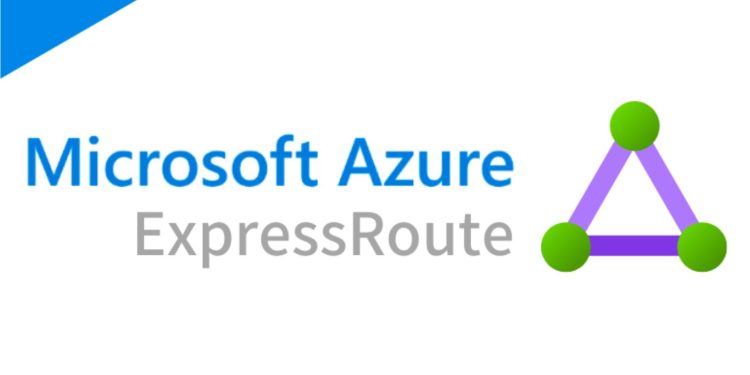A legal framework known as the General Data Protection Regulation (GDPR) establishes policies and procedures for the gathering and handling of personal information from people inside and outside the European Union (EU). This is done to safeguard data processing processes because sharing and transferring data carries some risk.
The GDPRs are guided by a number of elements. Some of them include rights of data subjects, restriction on storage, data, and purpose, data retention and data minimization, integrity and discretion, accountability, approval, precision, lawfulness, fairness, transparency, and awareness and training.
Azure ExpressRoute comes with many key security features. With them, you can ensure that the General Data Protection Regulation laws are followed and obeyed. This is because Azure ExpressRoute assures secured and dependable data sharing with a large bandwidth connection that has many backups and advanced protection.
In this article
What Are The GDPR Requirements
- The GDPR requires organizations to protect the personal data of individuals within the European Union (EU). Data exchange and transfer might result in interference, attack, or even theft. This law makes sure businesses have the right tools in place to safeguard customer data. As a result, Azure ExpressRoute automatically complies with GDPR requirements because it has numerous security features that aid in choosing the best channel for data transfer.
- This includes ensuring that data is collected and processed fairly and lawfully and that it is only used for the purposes for which it was collected. When gathering client data, organizations are obliged to handle it efficiently and in accordance with any applicable laws. Only the intended uses for this information should be made of it.
- The GDPR mandates that organizations put in place the proper organizational and technical security safeguards to guard against unauthorized access, use, disclosure, modification, or destruction of personal data. To protect client data, each business should have its own set of protocols and security measures
How Azure ExpressRoute Can Help
Your on-premises network and Azure are connected via a private, dedicated connection offered by Azure ExpressRoute. The Azure Cloud and your colocation facilities can now transmit data securely. Azure ExpressRoute requires an internet network provider and a number of internet protocols, including Border Gateway Protocol, to achieve this. Your data is thereby shielded from outside dangers and attacks.
This prevents your data from traveling across the open internet, which can aid in securing it against unauthorized access. You can eliminate the public internet network and take back control of your connection when Azure ExpressRoute establishes a private and specialized connection. You won’t have to risk your data privacy as ExpressRoute with choose the best and most secure pathway to share and transfer your data.
Azure ExpressRoute also offers a variety of security features, such as IPsec encryption and DoS protection, which can help to further protect your data. Internet Protocol (IP) security will help to prevent your data generally from attack. The Denial-of-Service (DoS) protection also helps with specific attacks from an attacker trying to use internet traffic to flood your server. These security features are advanced and more reliable. They ensure that the transfer of data is safe and secured.
Steps to achieve GDPR compliance with Azure ExpressRoute
Here’s how to achieve GDPR compliance with Azure ExpressRoute:
-
Choose the right Azure ExpressRoute connection for your needs.
Check Microsoft’s ExpressRoute pricing and select the right connection and data plan to suit your needs. This helps to determine the perfect one that best fits what you need and provides you with the utmost protection.
-
Implement the appropriate security features.
Azure ExpressRoute comes with many security features as discussed earlier. They will help to protect general data sharing and transfer. Ensure that these features are included and implemented. This is important to keep clients’ data safe and secure. It will also help to make data sharing and transfer easier and faster.
-
Keep an eye out for security risks with your Azure ExpressRoute connection.
The ExpressRoute needs to be constantly monitored. Hire personnel to keep an eye on the connection. Any security flaws or vulnerabilities will be obvious to them, and they may report them right away.
-
Provide your staff with GDPR compliance training.
Have a list of security precautions to follow and instruct your staff on how to make sure they are properly put into practice.
Final Thoughts
Azure ExpressRoute can help you achieve GDPR compliance by providing a private, dedicated connection to Azure and a variety of security features. Layer 3 connectivity, a point-to-point Ethernet connection, a lot of bandwidth, redundancy, and other features are among these security measures. To guarantee data security and continuous sharing and transmission, these will all function in concert.
However, it is important to note that Azure ExpressRoute is not a standalone solution. You will also need to implement appropriate security measures and train your employees on GDPR compliance. Never fail to implement privacy safeguards that will aid and direct your GDPR-trained personnel.


![5 best sites to buy Instagram Reels likes in [year] 2 2025 Social media platforms](https://techtout.com/wp-content/uploads/2023/07/social-media-applications-platforms-120x86.jpg)

![How to privately reply to a WhatsApp group message in [year] 4 2025 WhatsApp group private reply](https://techtout.com/wp-content/uploads/2020/09/moran-rvDoh9d9x5Q-unsplash-scaled-1-75x75.jpg)
![Top 10 AWS services in [year] 5 2025 AWS-Amazon](https://techtout.com/wp-content/uploads/2022/06/AWS-Amazon-75x75.jpg)

![How to enable dark mode on Instagram [year] 7 2025 Instagram dark mode guide](https://techtout.com/wp-content/uploads/2023/01/dark-mode-instagram-120x86.jpg)
![Best Metal Gaming Laptops [year] 8 2025 Best metal body laptops on Amazon](https://techtout.com/wp-content/uploads/2023/05/best-metal-gaming-laptops-120x86.jpg)
![25 popular Linux distros [year] 9 2025 Most popular Linux distros in 2023](https://techtout.com/wp-content/uploads/2023/08/popular-linux-distros-120x86.jpg)
![Instagram story decoration Ideas in [year] 10 2025 A photo of a person using Instagram on iPhone, showing Instagram stories decorations](https://techtout.com/wp-content/uploads/2023/02/decorate-instagram-stories-120x86.jpg)
![10 Best Browsers for iPhone in [year] 11 2025 Best iPhones browsers](https://techtout.com/wp-content/uploads/2023/05/best-iphone-browsers-120x86.jpg)
![Top 9 lifestyle apps that will improve the quality of your life in [year] 12 2025 Lifestyle apps for IOs and Android users](https://techtout.com/wp-content/uploads/2023/07/top-lifestyle-app-120x86.jpg)


![11 Latest Instagram Tips and Tricks [year] 16 2025 high angle photo of a mobile](https://techtout.com/wp-content/uploads/2020/08/instagram-profile-scaled-1-120x86.jpg)








